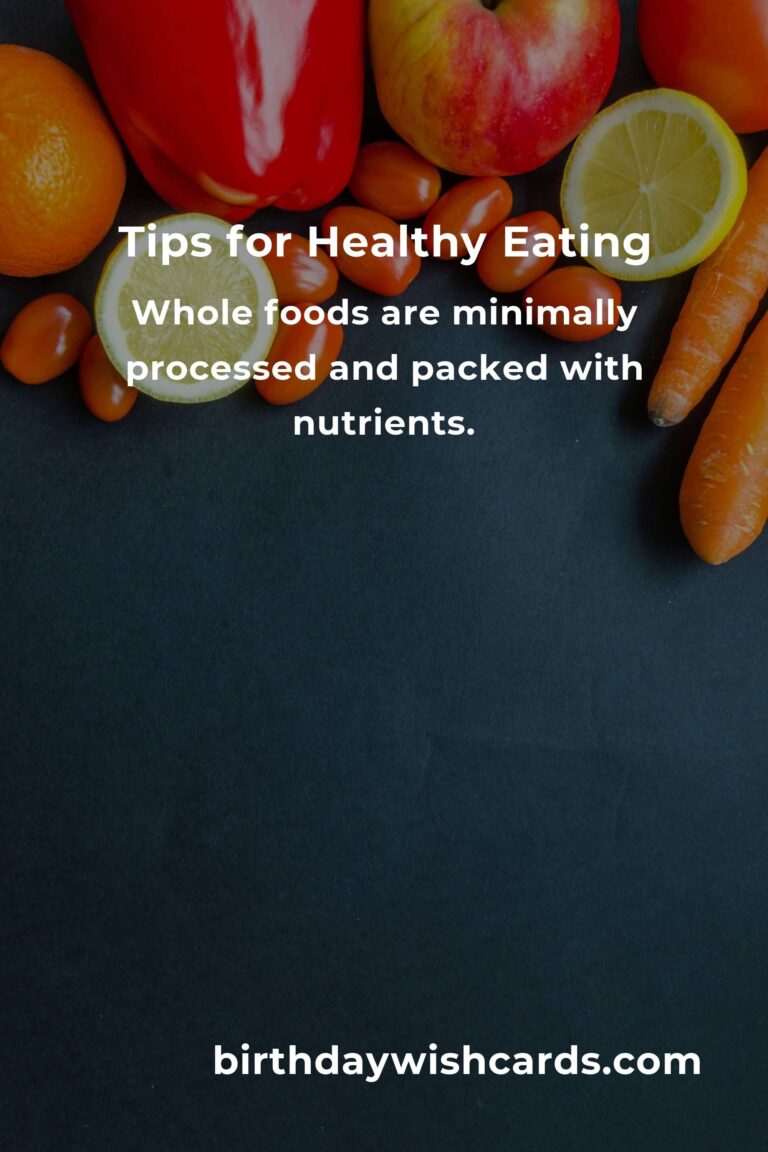
Adopting a healthier eating lifestyle doesn’t have to be difficult or overwhelming. With the right guidance and tips, you can make small changes that lead to significant improvements in your overall well-being. Here, we provide nine practical tips for easy healthy eating that can seamlessly fit into your daily routine.
1. Prioritize Whole Foods
Whole foods are minimally processed and packed with nutrients. They include fruits, vegetables, whole grains, nuts, seeds, and lean proteins. By prioritizing these foods, you provide your body with essential vitamins and minerals necessary for optimal health.
2. Plan Your Meals
Meal planning is a powerful tool that helps you make healthier food choices. It allows you to prepare balanced meals in advance, reducing the temptation to opt for unhealthy options when you’re short on time. Set aside a day each week to plan your meals and create a shopping list accordingly.
3. Portion Control
Understanding portion sizes is crucial for maintaining a balanced diet. Use smaller plates and bowls to help control portions, and pay attention to your body’s hunger cues. Eating slowly and mindfully can also help you recognize when you’re full.
4. Stay Hydrated
Drinking enough water is essential for maintaining good health. It aids digestion, supports metabolism, and helps flush out toxins. Aim to drink at least eight 8-ounce glasses of water daily, and consider carrying a reusable water bottle as a reminder to stay hydrated.
5. Limit Added Sugars
Excessive sugar intake can lead to weight gain and increase the risk of chronic diseases. Be mindful of the sugar content in processed foods and beverages, and try to limit your consumption of sugary snacks and drinks. Opt for natural sweeteners like honey or fruit when possible.
6. Incorporate Healthy Fats
Not all fats are bad. Healthy fats, such as those found in avocados, olive oil, nuts, and fish, are essential for brain function and hormone production. Include these fats in your diet while minimizing saturated and trans fats found in fried and processed foods.
7. Eat a Variety of Foods
Eating a diverse range of foods ensures that you receive a wide array of nutrients. Try to include different colors and types of foods in your meals, as each offers unique health benefits. Experiment with new recipes and ingredients to keep your meals exciting and nutritious.
8. Listen to Your Body
Your body knows best when it comes to hunger and satiety. Listen to your hunger cues and eat when you’re hungry, not just because it’s mealtime. Similarly, stop eating when you’re satisfied, not when your plate is empty.
9. Be Mindful of Your Eating Environment
The environment in which you eat can impact your food choices. Create a pleasant and distraction-free dining area to make mealtime an enjoyable experience. Avoid eating in front of screens or while multitasking, as this can lead to overeating.
By incorporating these tips into your routine, you can make healthy eating a natural and enjoyable part of your life. Remember, it’s about progress, not perfection. Small, consistent changes can lead to a healthier, happier you.
Adopting a healthier eating lifestyle doesn’t have to be difficult or overwhelming. Whole foods are minimally processed and packed with nutrients. Meal planning is a powerful tool that helps you make healthier food choices. Understanding portion sizes is crucial for maintaining a balanced diet. Drinking enough water is essential for maintaining good health. Excessive sugar intake can lead to weight gain and increase the risk of chronic diseases. Healthy fats are essential for brain function and hormone production. Eating a diverse range of foods ensures that you receive a wide array of nutrients. Your body knows best when it comes to hunger and satiety.
#HealthyEating #Nutrition #Wellness #HealthyLifestyle #MealPlanning #Hydration #BalancedDiet













